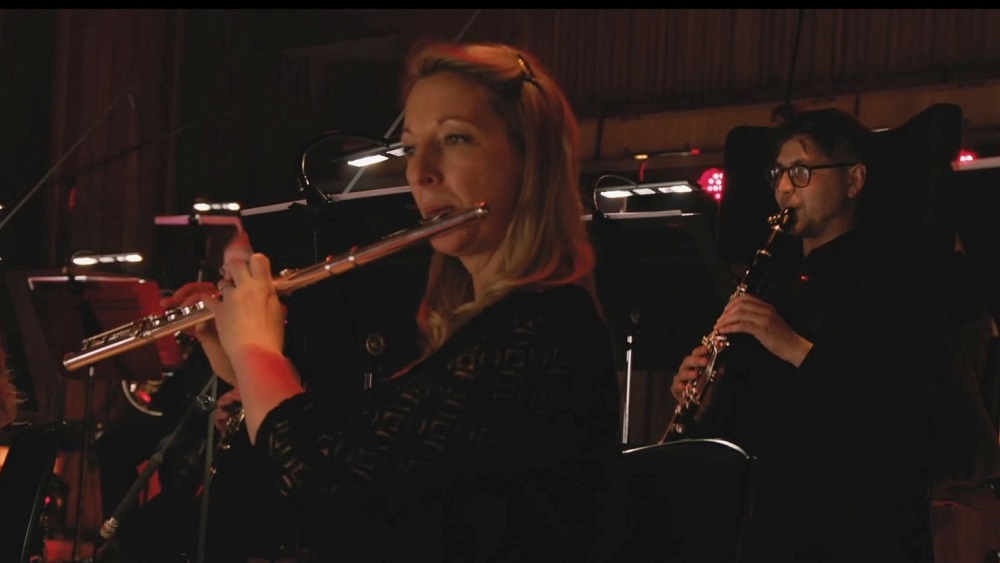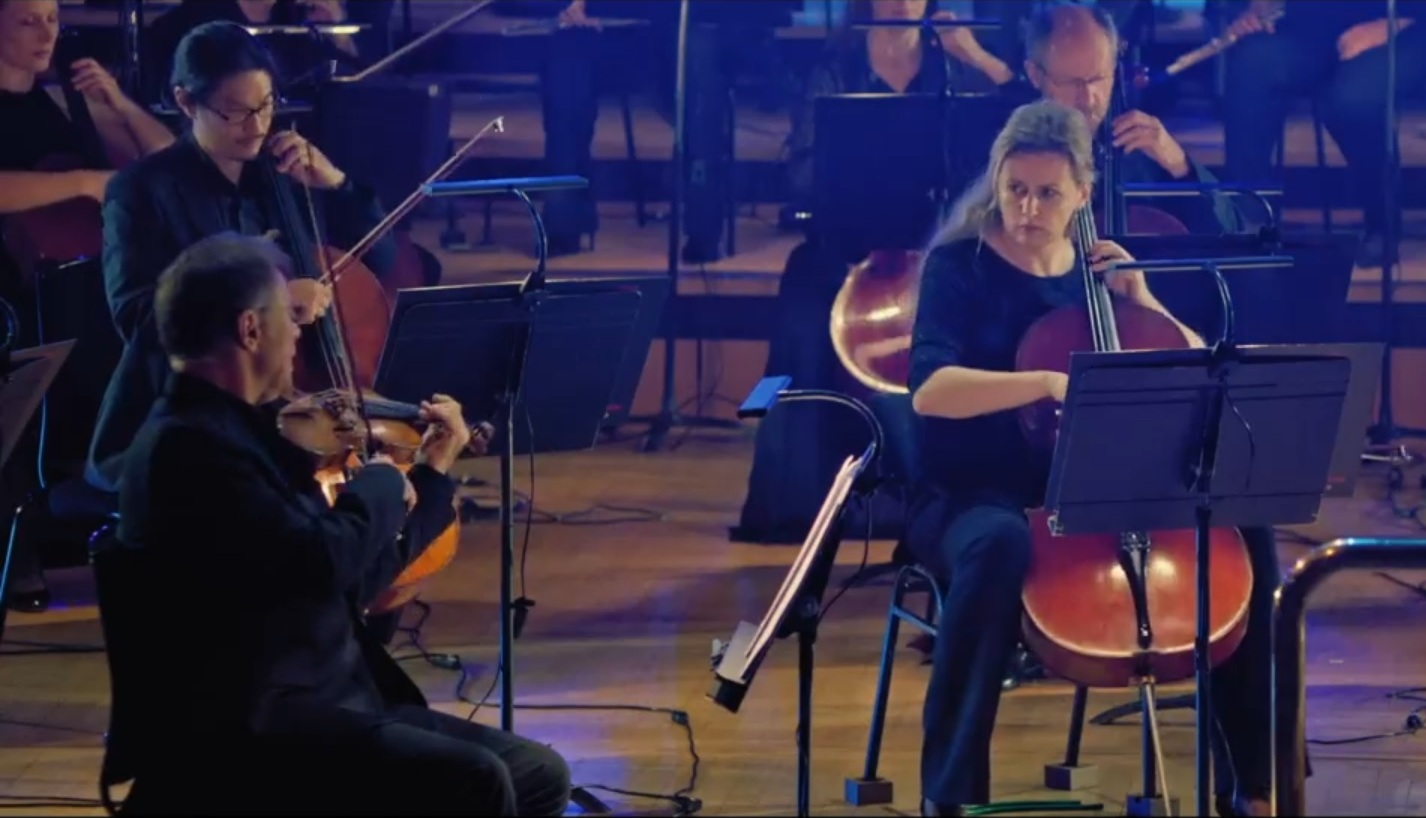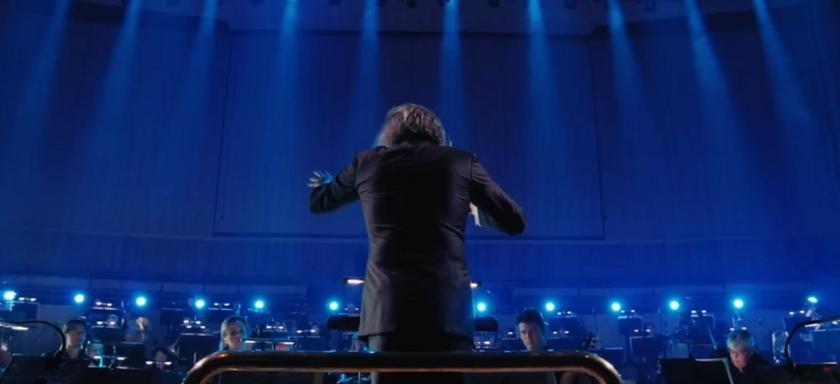Two regrets and a tentative hope before full praise for what has to be the best complete Swan Lake in concert ever. Not everyone will be sorry, as I am, that Jurowski chose for his grand leavetaking as music director of the London Philharmonic Orchestra Tchaikovsky’s first ballet over his second, The Sleeping Beauty, with its far more elaborate and experimental orchestral palette (have any of the three been conducted in full until now at the Royal Festival Hall since I heard Rozhdestvensky and the BBC Symphony Orchestra’s Beauty as part of a very sparse audience in 1978?).
Why meddle so much with what we see? The conductor and players are surely the thing, and some of them (brass and wind especially) remain in semi-darkness, while seach-lights and colour changes strafe the faces of others. Choose your colours and stick to those, at least for an act; there’s no reason why lakeside blue should give way to a hideous sulphurous yellow at the end of Act Two. Director Nathan Prince needs to restrain lighting co-ordinator Nick Gray; in fact I’m surprised Jurowski, of all rigorous masters, put up with this. It’s worth the rest of us doing so for the performance: lithe and lilting, never rushed (personally I’d like a few slower tempi in the high drama of the last act, but there’s a good case to be made for the ones we get). No single number is a bore; it’s often in the less well-known divertissements that the most piquant pleasures are to be had, especially in the sashaying that kicks off the Act Three Pas de Six. That and the more rustic Act One Pas de Trois are gilded by the solos of flautist Juliette Bausor and clarinettist Benjamin Mellefont (pictured above).
It’s worth the rest of us doing so for the performance: lithe and lilting, never rushed (personally I’d like a few slower tempi in the high drama of the last act, but there’s a good case to be made for the ones we get). No single number is a bore; it’s often in the less well-known divertissements that the most piquant pleasures are to be had, especially in the sashaying that kicks off the Act Three Pas de Six. That and the more rustic Act One Pas de Trois are gilded by the solos of flautist Juliette Bausor and clarinettist Benjamin Mellefont (pictured above).
The biggest solo burden in the orchestra rests with the leader, who has four major solos. On CD, some conductors have the luxury of star soloists: Ida Haendel for André Previn, James Ehnes for Neeme Järvi. Neither excels the brilliant, characterful work of Pieter Schoeman; it’s his evening almost as much as Jurowski’s, especially given the inclusion of Act Three’s two “supplementary numbers”, the Pas de Deux modelled on outlines by Minkus and the dashing "Danse Russe" which Tchaikovsky adapted from a piano miniature. Schoeman is perfect in duet with principal cellist Kristina Blaumane (pictured below) as the Prince and Odette fall in love to the great Pas d’Action of Act Two (adapted from a love scene in the discarded opera Undine).  Jurowski pays equal attention to the articulation of the individual dances and the sweep of the dramatic narratives: those in Act Two – Numbers 11 and 12 - are especially vivid, and if you’re not familiar with how closely Tchaikovsky mirrored the original scenario, the optional text is helpful. Don’t be surprised to find Von Rothbart supplanted by a wicked stepmother in the form of an owl by the lake and appearing only in the next act; this is the original 1877 storyline, with a few questionable changes (why pistols for crossbows, for instance?), rather than the well-known outlines provided by the composer’s brother Modest for the famous revival after Tchaikovsky’s death. Only the Russians, I think, still put up with Drigo’s interpolated arrangements of three Tchaikovsky piano pieces, but you won’t ever witness the full score danced in the theatre.
Jurowski pays equal attention to the articulation of the individual dances and the sweep of the dramatic narratives: those in Act Two – Numbers 11 and 12 - are especially vivid, and if you’re not familiar with how closely Tchaikovsky mirrored the original scenario, the optional text is helpful. Don’t be surprised to find Von Rothbart supplanted by a wicked stepmother in the form of an owl by the lake and appearing only in the next act; this is the original 1877 storyline, with a few questionable changes (why pistols for crossbows, for instance?), rather than the well-known outlines provided by the composer’s brother Modest for the famous revival after Tchaikovsky’s death. Only the Russians, I think, still put up with Drigo’s interpolated arrangements of three Tchaikovsky piano pieces, but you won’t ever witness the full score danced in the theatre.
As Jurowski and the LPO prove, every bar of it bears the stamp of the composer’s genius. Five stars for the performance, but one has to be knocked off for the look of it. If the LPO were to release the recording on its own CD label, it would probably go to the top of the list; but Jurowski has already had one shot, following a superb Sleeping Beauty, with the now cumbrously titled State Academic Symphony Orchestra of Russia "Yevgeny Svetlanov", so that seems unlikely.
Footnote (added later): it's come to my attention that Jurowski has been very vocal about the ambition of conducting the original version. In fact that's what we get on nearly every complete recording, and have had for decades. But kudos, still, for performing it all in concert.













Add comment